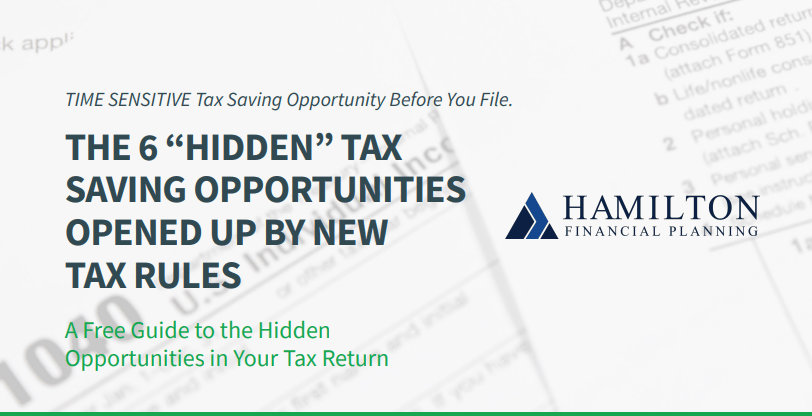
By Scott Hamilton, CFP®
At Hamilton Financial Planning, LLC, we prioritize community engagement and value a spirit of generosity. If you can relate, you’re aligned with our clients who share similar values. You understand that life extends beyond your immediate circle, and you’re committed to leaving a positive impact, contributing to the greater good whenever possible. Grateful for the opportunities you’ve received, you’re eager to pay it forward in a meaningful manner.
Your charitable giving serves a purpose, and our role is to assist you in the most strategic way possible. Every dollar saved in taxes translates to another dollar available for meaningful contributions to society.
As a vital component of retirement planning cash flow, required minimum distributions (RMDs) present an opportunity to support these values. Instead of transferring these funds to your bank account, consider directing your RMDs directly to a charity, a strategy known as a qualified charitable distribution (QCD).
Table of Contents
Benefits of Making a Qualified Charitable Distribution
While cutting out yourself as a middle man saves you a lot of time and administration, that’s not where the greatest benefit of a QCD lies. The greatest benefit is actually financial. You can save a lot of money on taxes by sending your RMD directly to a charity instead of taking it for yourself first.
When you make a QCD, it is excluded from your taxable income because the amount that you donate never shows up on your tax return. This leaves you with a lower taxable income and, therefore, a lower tax bill. And you don’t even have to itemize your deductions to get this tax break.
Are You Eligible to Make a Qualified Charitable Distribution?
Not all retirement accounts are eligible to use the funds as a QCD. It has to be an IRA that is a traditional, rollover, inherited, inactive SEP, or inactive SIMPLE plan. A SEP or SIMPLE is considered inactive if no employer contribution has been made during the plan year that ends during the tax year that the charitable contribution is made.
In addition to having the right kind of account, these other requirements must be met:
- You must be age 70½ or older.
- To count toward the RMD for the year, the funds must come out of the IRA account by the RMD deadline, which is usually December 31. Excess donations cannot count toward future-year RMDs.
- QCDs cannot be greater than the amount that would otherwise be taxed as ordinary income (excluding non-deductible contributions).
- Total QCDs cannot exceed $100,000 per calendar year per taxpayer, regardless of the number of charities donated to.
- Funds must be distributed directly to the charity. If you take a distribution and then give it to charity, it does not count as a QCD.
Is Your Charity Eligible to Receive a Qualified Charitable Distribution?
After establishing your own eligibility, you need to make sure that your charity is also eligible to receive a QCD. First, it must be a 501(c)(3) organization that is eligible to receive tax-deductible contributions.
On top of that, there are certain types of organizations that are not eligible to receive QCDs. They are:
- Private foundations
- Supporting organizations (charities that only exist to support other exempt organizations, usually public charities)
- Donor-advised funds managed by public charities on behalf of individuals, families, or organizations
How Are Qualified Charitable Distributions Reported?
Unless it is an inherited IRA, QCDs are reported as normal distributions on Form 1099-R. For inherited IRAs, they are reported as death distributions. Though state rules vary, QCDs are not subject to federal tax withholding.
Because it is already tax-free, you may not claim the QCD as a charitable tax deduction. Even though you aren’t claiming it as a deduction, you need the same acknowledgment of the donation that you would need if you were. Keep this in your records in order to document the fact that the QCD was in fact qualified.
We Are Here to Help
We recognize that supporting charitable causes is a priority for you. Since you’re inclined to give regardless, why not do so in the most tax-savvy way possible? QCDs present an excellent opportunity for those who are required to take minimum distributions from their retirement accounts.
However, it’s essential to adhere to specific rules and requirements so distributions qualify for exempt status. Working with an experienced financial professional can provide assurance that you’ll execute a QCD correctly. If you’re interested in learning more about qualified charitable distributions, Hamilton Financial Planning is here to guide you through that process.
If you’re seeking a financial planner dedicated to simplifying financial management and stabilizing your financial future, allowing you to focus on what you care about the most, schedule a complimentary get-acquainted meeting online or reach out to us at 512-261-0808 or scott@hamiltonfinancialplanning.com.
About Scott
Scott Hamilton is founder and chief financial officer at Hamilton Financial Planning, a wealth management firm that specializes in providing comprehensive financial planning for retirees. With over 20 years of experience in the financial industry, and having completed over 250 financial plans for retirees across all industries, but mostly the oil and gas industry, Scott is passionate about providing his clients with the tools and insight they need to achieve their financial goals. He has a Bachelor of Business Administration in finance from Texas State University and an MBA in international finance from Pepperdine University. Scott has also been happily married to his wife, Gayle, for over 25 years. To learn more about Scott, connect with him on LinkedIn.

